This is a guest post by Daria, a Baja California travel expert.
The Baja California Peninsula is my favorite place in Mexico that includes two states – Baja California and Baja California Sur.
The sparsely populated region is popular for camping, RVing, and road-tripping thanks to its scenic vistas and remote areas that are perfect for spending time in nature, stargazing, and wildlife watching. If you want to unplug and enjoy the unspoiled scenery, there’s no better place in Mexico than Baja.
I’ve traveled across Baja California, and spent time camping, hiking and visiting towns in this part of Mexico, and would like to share my insights with you.
Let’s look at both states to find out what makes them different and similar.
Is Baja California different from Baja California Sur?
Baja California is defined by its proximity to the United States, with many Americans traveling to places like Tijuana, Ensenada and Rosarito for shopping, medical tourism or just enjoying a quick getaway.
Valle de Guadalupe, a top producing wine region just south of Tijuana is becoming one of the trendiest places in Baja as more travelers are looking for alternatives to costly places like Sonoma, Napa Valley and Santa Barbara.
I wasn’t a huge fan of Tijuana when I made my first day trip there from San Diego years ago, because it felt very Americanized in “safe” parts of town like Avenida Revolucion, or Zona Rio.
Most people that I talked to prior to my trip, warned me against going off the beaten path in Tijuana for safety reasons, which left me a bit disappointed, but it seemed like once you start getting away from the tourist zone, some areas would start looking more sketchy.
Baja California Sur
Baja California Sur, is statistically one of the safest states in Mexico, with a relatively low crime. Speaking from personal experience, Baja Sur has more amenities and infrastructure, particularly when it comes to accommodations, camping, and availability of supplies including stores and gas stations.
When coming here from Baja California Norte, you will notice a higher concentration of camper vans and RV’s particularly in places like Bahia Concepcion, Loreto and La Paz.
San Ignacio, a hidden gem and one of my favorite destinations in Baja California has decent hotels and restaurants for its small size, further down south places like Mulege and Loreto, have a well established tourism industry, and once you get to La Paz and Cabo San Lucas, you will be able to see nightlife and great comfort.
Baja California vs Baja California Sur: location

Baja California
Located in the northern part of the Baja California Peninsula, Baja California shares a border with the United States to the north and borders Arizona and California. Its capital is Mexicali, a sprawling desert town known for its triple-digit temperatures and proximity to las Dunas De Los Cuervitos, a sandboarding paradise in northern Mexico.
Baja California Sur
Baja California Sur is in the southern part of the Baja California Peninsula. Baja California Sur is surrounded by the Pacific Ocean to the west and the Gulf of California to the east. Its capital is La Paz, one of the most underrated destinations in Mexico, with incredible opportunities for eco-tourism and recreation.
Many people prefer Baja California Sur, which is way more touristy, but to be honest, I felt like Baja Norte offers just as much fun when it comes to outdoor activities like whale watching, hiking, camping and surfing. You just need to know where to go.
Some of the most unique places in Baja Norte, like Sierra De San Pedro Martir National Park, Catavina and Bahia De Los Angeles, are off the beaten path and require time and effort to get to. If you aren’t pressed on time, you should visit at least one of these places.
While Baja Norte doesn’t have an equivalent of Cabo, prices on food and accommodations in places like San Felipe, San Quintin and Mexicali are only a fraction of what you can expect in Cabo, Todos Santos or even Loreto, which has become more popular in recent years, after direct flights from several U.S. cities were launched.
Baja California Norte vs Baja California Sur: safety
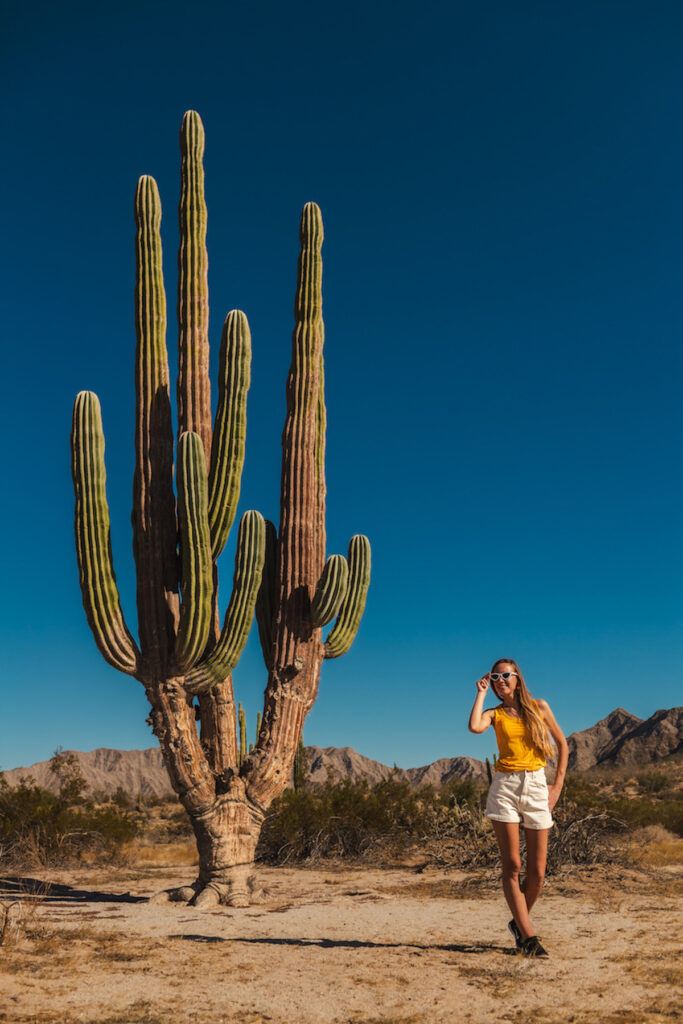
Is Baja California Sur safe?
Baja California is one of the safest states in Mexico with a relatively low crime rate. San Jose Del Cabo and the surrounding municipality see the most crime in Baja California because of the crime and violence related to drug trafficking, but the rest of Baja is perfectly safe as long as you follow basic precautions. Places like Mulege and Loreto are among the safest in all of Mexico, with low crime and tourism-based economy.
I spent a few weeks camping in Baja Sur, and never felt unsafe. Many travelers who come here spend weeks enjoying outdoor activities and watching Baja’s incredible wildlife.
Is Baja California Norte safe?
Baja California Norte has one of the highest homicide rates in Mexico, because of the drug violence along the U.S.-Mexico border, especially in Tijuana.
But once you get outside the border region, Baja Norte is relatively safe, with plenty of scenic and tranquil places like San Felipe, San Quintin, and Bahía De Los Angeles, where you can enjoy fun adventures by day and stargaze by night.
I never experienced sketchy situations on my trips to Baja, but I also avoided overly remote places, and never hiked or camped alone.
Although many popular campgrounds in Baja might feel crowded with RV’s and big cars, they offer a safer alternative compared to remote places, which are undeniably beautiful, but also pose certain dangers, particularly if they require a 4X4 vehicle and are not easily accessible in case of an emergency.
READ NEXT: 41 ways to stay safe while traveling alone as a woman
Baja California Norte vs Baja California Sur: travel cost
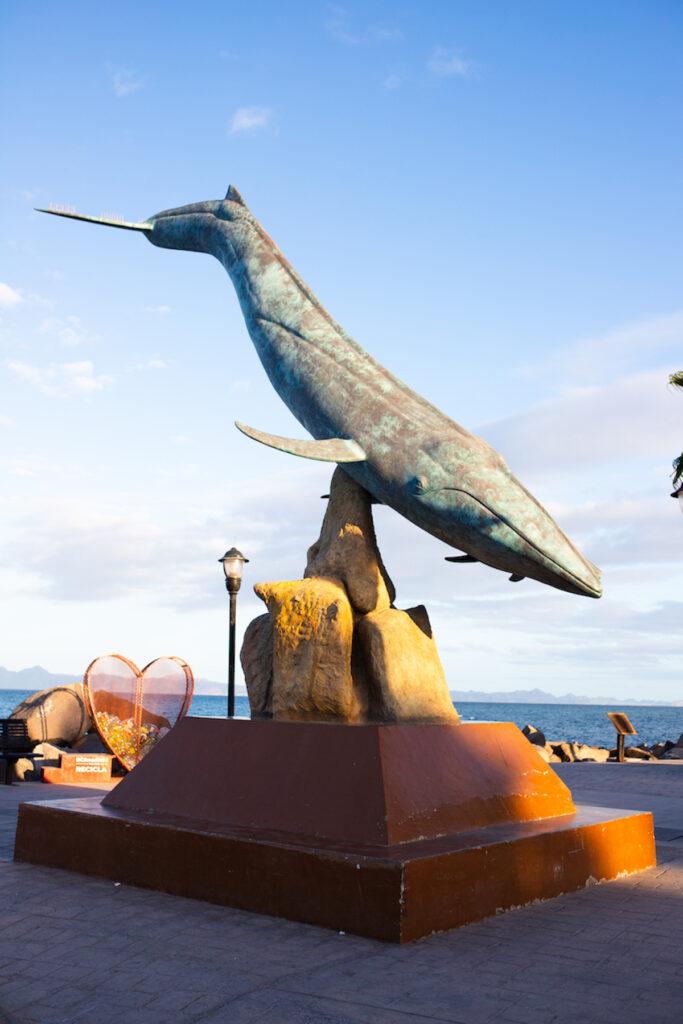
The Baja California Peninsula is part of Northern Mexico, and prices here are considerably higher than elsewhere in Mexico.
Popular places like Cabo San Lucas and Todos Santos are among the most expensive in the region, and prices on accommodations, food and gas in Rosarito, Ensenada, and Valle De Guadalupe are higher than on the mainland Mexico.
In other words, if you plan to travel around Baja, be ready to pay extra.
Always carry cash. Even though you can pay with credit cards in restaurants, stores, tour agencies, and gas stations, street vendors and taco stands operate on cash.
Baja California Norte vs Baja California Sur: things to do

Baja California Sur and Baja California Norte offer relatively similar activities, with surfing along the Pacific Coast and diving and snorkeling along the Sea of Cortez. Baja Sur boasts well preserved missions and more developed campgrounds, while Baja California Norte requires better navigation skills because many places have less tourist traffic, and are not marked well a lot of times.
Places to visit in Baja California Norte
Tijuana
A gateway to Baja California, Tijuana makes for a good stop if you are continuing to other places in Baja and want to stretch your legs and see the busiest border crossing in the world. Avenida Revolución is a popular and somewhat tacky street with shops, bars, and restaurants.
If you don’t speak Spanish and want to get your bearings on Baja before continuing your adventure, Tijuana is a good place to start your trip: Many people here speak English, the food scene is incredible and there are plenty of convenience stores.
Tijuana was my first destination in Baja California when I decided to take a quick day trip from San Diego, as I wanted to see what this border city was about. Although I didn’t fall in love with it, it sparked my curiosity about Baja, and I ended up returning shortly afterwards to see more of the region.
Ensenada
Ensenada is a port city known for its seafood, wineries, and cultural scene. The famous Baja fish tacos are believed to have been invented in Ensenada, and you can find tons of cool taquerias throughout the city.
Exploring local taquerias in Ensenada is a perfect way to get outside the tourist bubble and mingle with locals, especially if you have a car, since many of them are located away from downtown Ensenada.
I loved spending time on Ensenada beaches in December. Although mornings were a bit chilly, afternoons were great for strolling around and enjoying the sun. It was also a low season in Enseada, when prices on accommodations were pretty low.
La Bufadora
La Bufadora is a natural blowhole and the largest geyser in North America just outside of Ensenada. The best time to see this natural phenomenon is during the high tide when the strong waves push water through the opening in the rocks.
The easiest way to reach La Bufadora is by car rental but you can also join a guided tour of La Bufadora from Ensenada.
I saw La Bufadora only on my second visit, so it’s a good idea to check the weather before heading out there. Once you get to La Bufa, you will have to pay a few dollars for parking, while the entrance to this natural landmark is free.
Valle de Guadalupe
Also known as the “Napa Valley of Mexico” due to its numerous vineyards and wineries, Valle De Guadalupe is a top wine-producing region of Mexico with the peak season from March through October.
If you visit Valle De Guadalupe during the off season which is from November through March, you can score great prices on accommodations ranging from $50-70 per night.
Rosarito Beach
Just south of Tijuana, Rosarito Beach offers sandy beaches, surfing, and plenty of seafood restaurants. It’s a popular destination for weekend getaways from South California. I didn’t spend much time in Rosarito, but the town is always busy because of its proximity to the United States.
San Felipe
San Felipe is one of my favorite places in Baja Norte. Located on the eastern side of the Baja Peninsula along the Sea of Cortez, this small town is known for its unspoiled beaches, water sports, and off-roading. It’s a great alternative to Ensenada and Rosarito, as it’s more quiet and affordable.
The charm of San Felipe is in its remote location and unspoiled scenery – it’s closer to Mexicali than to Tijuana, so many travelers who come to Baja from Southern California, end up missing this place.
Parque Nacional Sierra de San Pedro Mártir
One of the hidden gems of Baja California, Parque Nacional Sierra de San Pedro Martir is a hidden gem of Baja that offers mountainous landscapes, hiking trails, and the opportunity for stargazing at the National Astronomical Observatory.
La Rumorosa
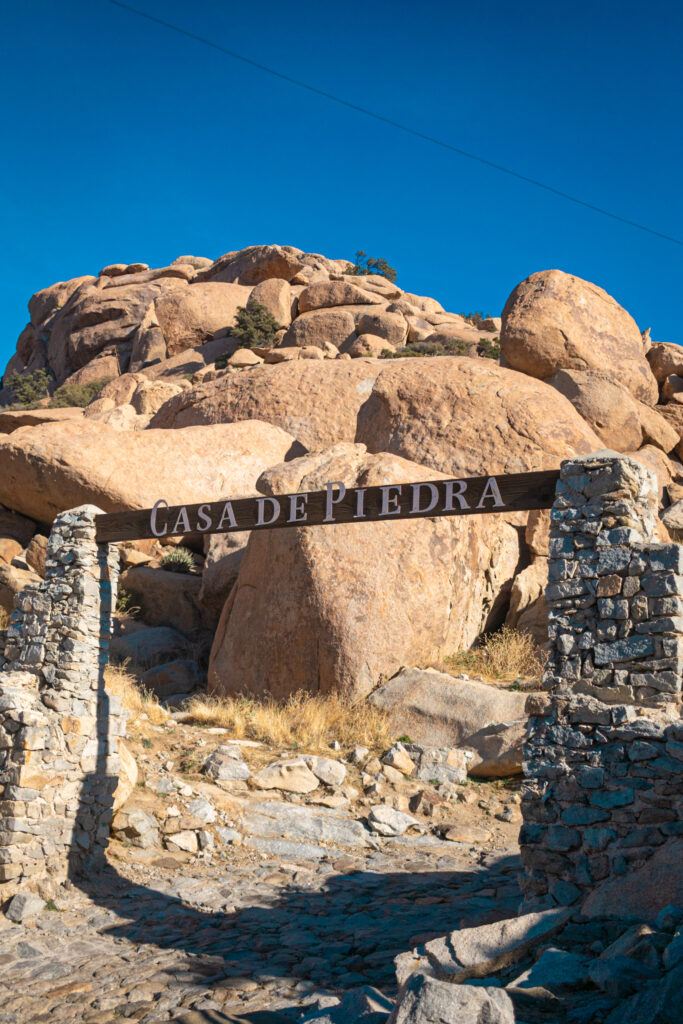
La Rumorosa is a mountain pass between Mexicali and Tecate offers breathtaking views of Baja’s desert landscape. It’s a popular spot for photographers and outdoor enthusiasts with multiple overlooks, hiking trails, and historic landmarks like Casa De Piedra and Campo Alaska. I loved driving along La Rumorosa and stopped at many of its scenic overlooks to take photos and drone videos.
Places to visit in Baja California Sur
Cabo San Lucas
Known for its stunning beaches, high-end resorts, and nightlife, Cabo San Lucas is a gateway to adventure in Baja California Sur that has access to a range of activities like snorkeling, scuba diving, fishing, and whale watching.
Its sister city, San Jose Del Cabo boasts a colonial downtown with cobblestone streets, historic buildings, and art galleries.
Cabo offers a very different side of Baja, with luxury hotels, expensive restaurants and curated tours, so it’s hardly a surprise that it’s become one of the most popular destinations in Mexico for bachelorette parties, honeymoons and other special events, as many travelers come here to enjoy the mix of outdoor adventures and luxurious stays and amenities.
Cabo Pulmo National Marine Park
Located on the East Cape of the Baja Peninsula, Cabo Pulmo is a UNESCO World Heritage Site and home to one of the healthiest coral reefs in the Eastern Pacific. It’s a bucket list activity for many divers who come here to see marine life including colorful fish, sea turtles, and rays.
The Sea of Cortez is known as “The Aquarium of the World,” a nickname that was given by the famous naturalist Jaques Yves Cousteau because of its biodiversity. You can book a diving or snorkeling tour of Cabo Pulmo National Park from La Paz or Cabo San Lucas.
La Paz
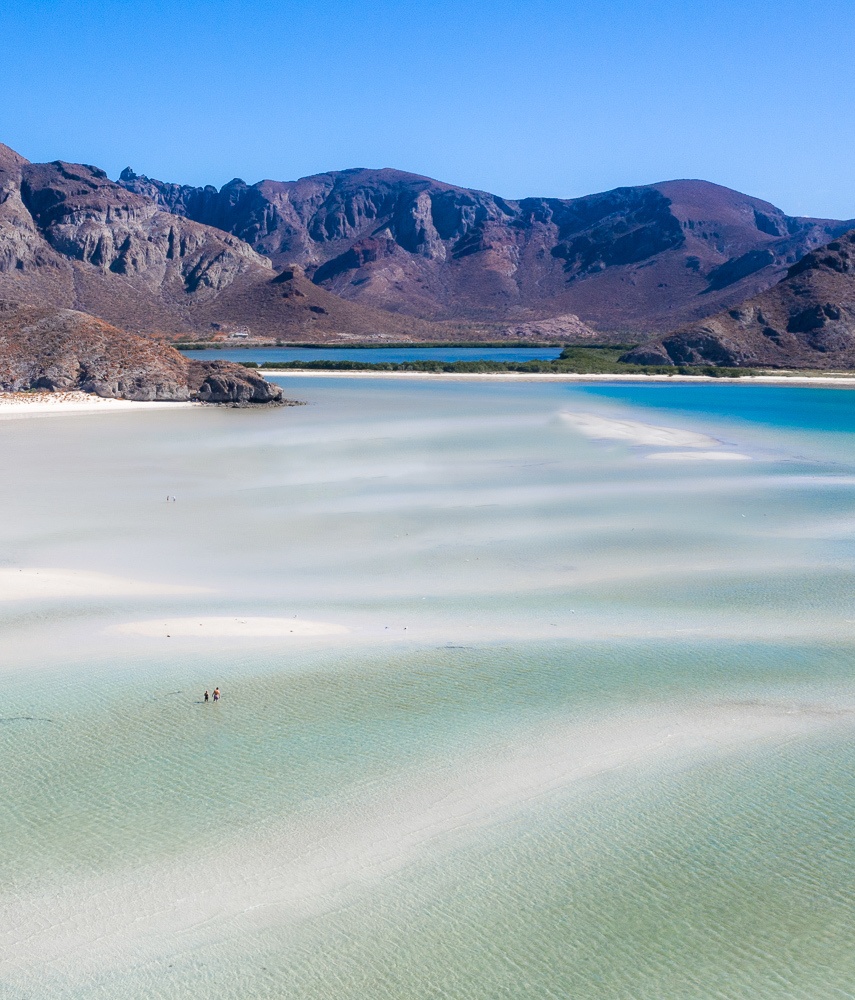
The capital of Baja California Sur, La Paz has beautiful beaches, a lively malecón (boardwalk), and a good selection of restaurants.
It’s also a hub for eco-tourism, with opportunities for snorkeling with sea lions at Espiritu Santo Island, and whale watching in the Sea of Cortez. Many international visitors skip La Paz, but I loved this underrated city because of its quiet feel, outdoor opportunities and wildlife watching.
The downside of La Paz is that it can be externally hot, especially from May through August, but if you can visit it in late fall or spring, you will enjoy your time here.
Todos Santos
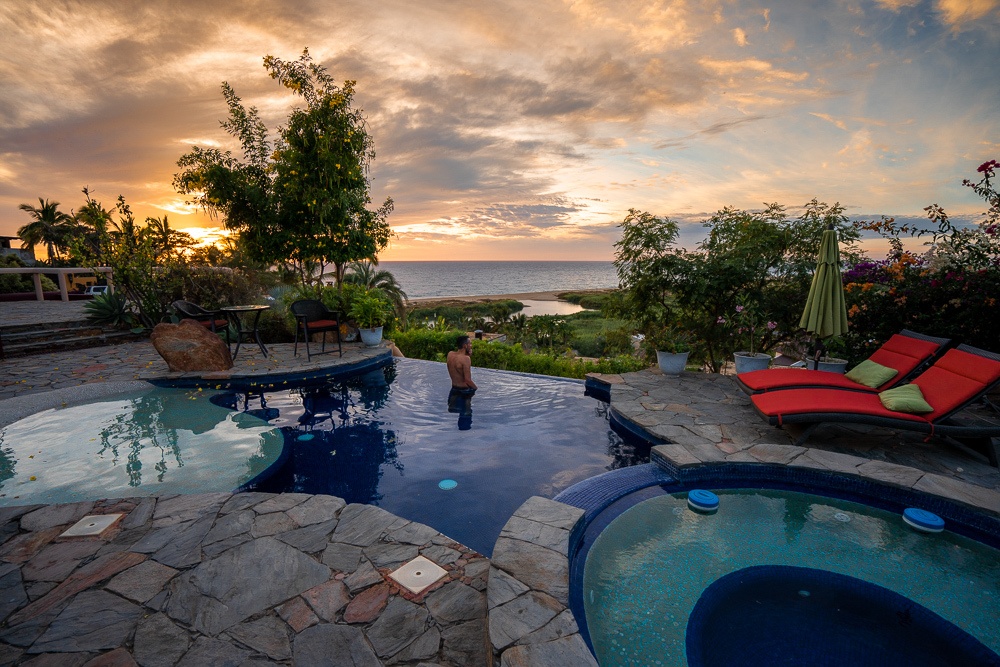
A charming town with a rich cultural heritage, Todos Santos is one of the most popular day trips from Cabo San Lucas. Known for its art galleries, historic architecture, and laid-back atmosphere. It’s also famous for its surfing beaches like Play Cerritos and the Hotel California.
I loved exploring the streets of Todos Santos, but the town has become more expensive, as tourism has become the main economy.
Loreto
A historic town with a picturesque waterfront, Loreto offers a mix of culture and history. Don’t miss the Mission of Our Lady of Loreto, one of the oldest missions in Baja California, and the nearby museum where you can learn the history of Baja California.
One of the must-stops is Bahia De Loreto Parque Nacional, a group of islands that offer wildlife watching, scuba diving and snorkeling.
Mulege
Mulege is a small desert town with a historic mission and spectacular landscapes that are a gateway to some of the best beaches in Mexico along Bahía Concepción like Playa Santispac, Playa El Burro, and Playa Los Naranjos.
Mulege was one of the most memorable stops on my first road trip through Baja California, and I always come back here, whenever I have a chance.
Magdalena Bay
A haven for wildlife enthusiasts, Magdalena Bay is known for its abundant marine life. Visitors can take guided boat tours to observe gray whales (during the winter months), dolphins, sea lions, and migratory birds. It’s a critical breeding and calving ground for gray whales, and visitors can take boat tours to observe these majestic creatures up close.
Santa Rosalía
A former mining town that was founded by the French in the late 19th century. Santa Rosalía is known for its historic architecture, including the Eiffel-designed church, and delicious French pastries.
Santa Rosalia makes for an interesting day trip from Mulege, but it’s often overlooked by travelers, so if you want to see a less visited destination, don’t forget to stop here.
Baja California Norte vs Baja California Sur: food
Baja California Norte
Baja California is famous for its seafood, especially dishes like fish tacos and ceviche. The region’s culinary scene also includes innovative fusion cuisine influenced by Mexican and Mediterranean flavors and in some taquerias, you can try mouthwatering Baja’s tacos for about 1 USD per piece.
Baja California Sur
The cuisine of Baja California Sur also features an abundance of fresh seafood, often prepared in traditional Mexican recipes. Additionally, the region is known for its farm-to-table dining experiences, with many restaurants sourcing local ingredients. Cabo San Lucas in particular, boasts a wide array of restaurants where you can try regional specialties and traditional Mexican fares.
Baja California vs Baja California Sur: Culture
Baja California
When you visit cities like Tijuana, Ensenada, and Rosarito, don’t be surprised to see many signs in English, and prices higher than usual, as many places here cater to North American tourists who have more purchasing power. English is spoken more than in other parts of Mexico, so if you don’t speak Spanish, you might feel more at home here.
Baja California Sur
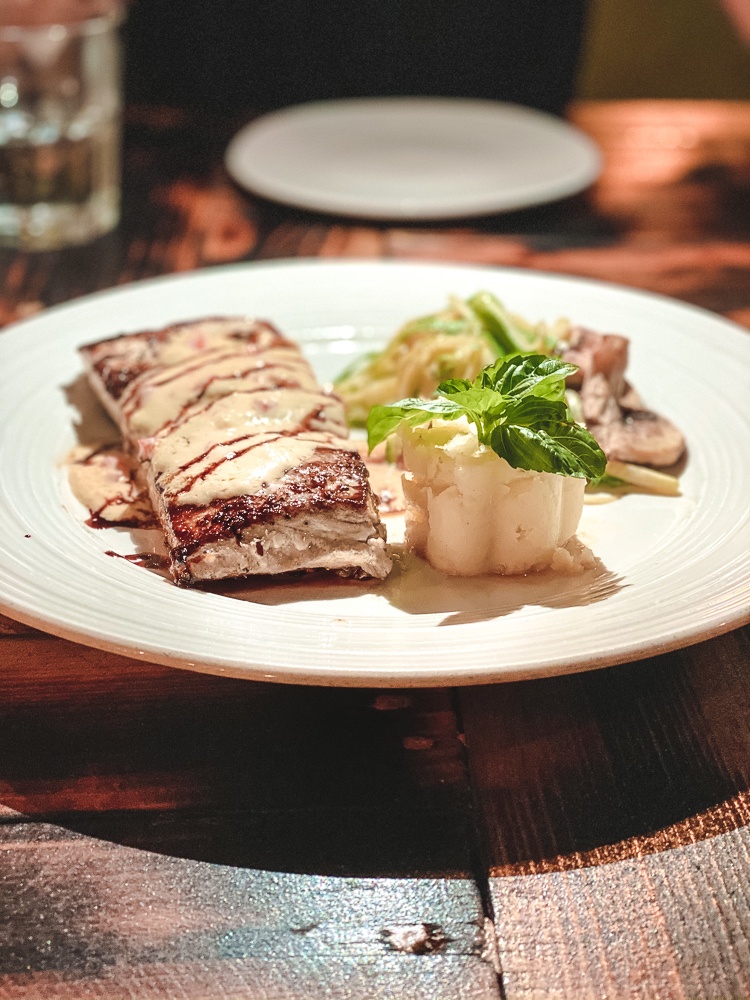
Baja California Sur has a rich cultural heritage shaped by its indigenous roots and Spanish colonial history. The region is home to historic missions in places like Loreto, Mulege, and San Ignacio where you can get a glimpse into the timeline of Baja’s colonization.
Cabo San Lucas and San Jose Del Cabo are 2 popular resort towns that have high-end resorts, fancy restaurants, and a budding art scene.
San Jose Del Cabo Airport (SJD) has flights from many destinations in the United States and has mostly American tourism, with some domestic tourism from Mexico as well. If you take a flight to Cabo San Lucas, it’s a good idea to book Cabo’s popular tours like taco tastings, sunset sailing and ziplining.
Baja California Sur vs Baja California Norte: Infrastructure
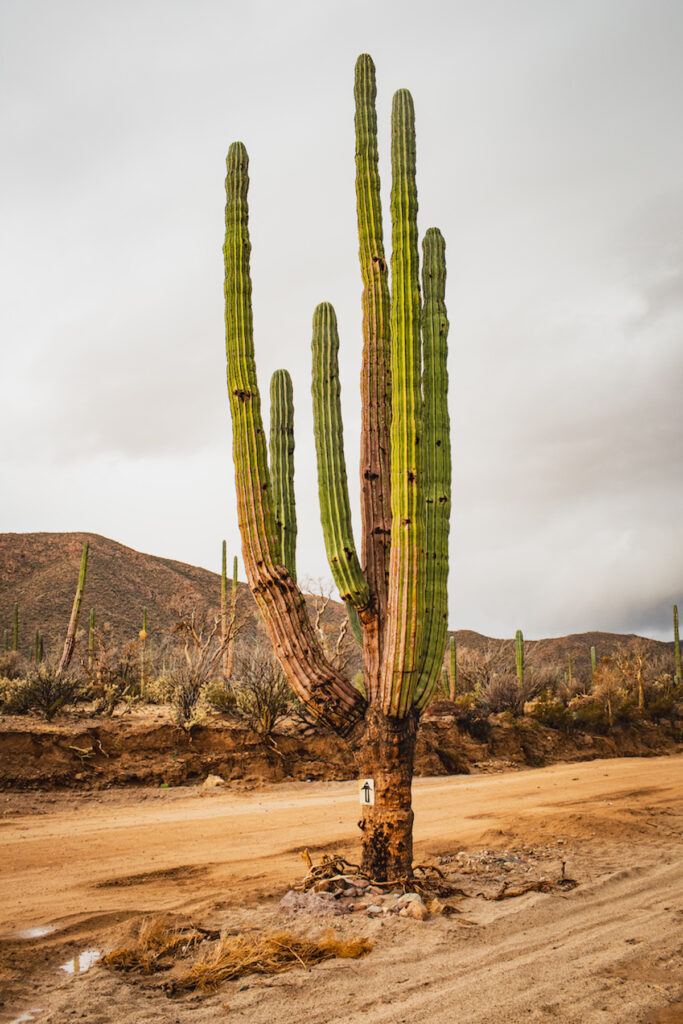
Baja California Norte and Baja California Sur both have developed infrastructure along major highways and popular tourist destinations, but if you want to get off the beaten path, be ready for fewer amenities and bumpy roads.
Driving in Baja California
Driving in Baja comes with some caveats, because of long distances and limited amenities, so you should come prepared when getting on a road.
It’s best not to drive at night in Baja because oftentimes, you can encounter cows and donkeys roaming along highways, which could lead to an accident, given the lack of light on Baja’s roads.
I’ve had a few near accidents while driving in the dusk through Baja Sur, after which I limited all my driving to day time.
Always watch out for rain storms, as it’s common for highways in Baja to get flooded. This happened to me once when I was driving through Baja Norte, when part of the highway became flooded and it took 6 hours for the rain water to recede before all the cars could pass again.
It’s also not uncommon for cell phone signals to disappear entirely in parts of Baja California.
Final word
While these two states share similar geographical features, they offer a very different experience when it comes to travel. Baja Sur is great if you are looking for more amenities and quick connections to the US and Canada via Cabo San Lucas. Baja California Norte is less explored and makes a fun place to visit if you want to explore the unspoiled Baja coastline and enjoy a quick Mexico getaway from Southern California.
About the author: Daria is a travel blogger who encourages her audience to get outside their comfort zone via Explore Baja California, a website about her favorite destination in Mexico.
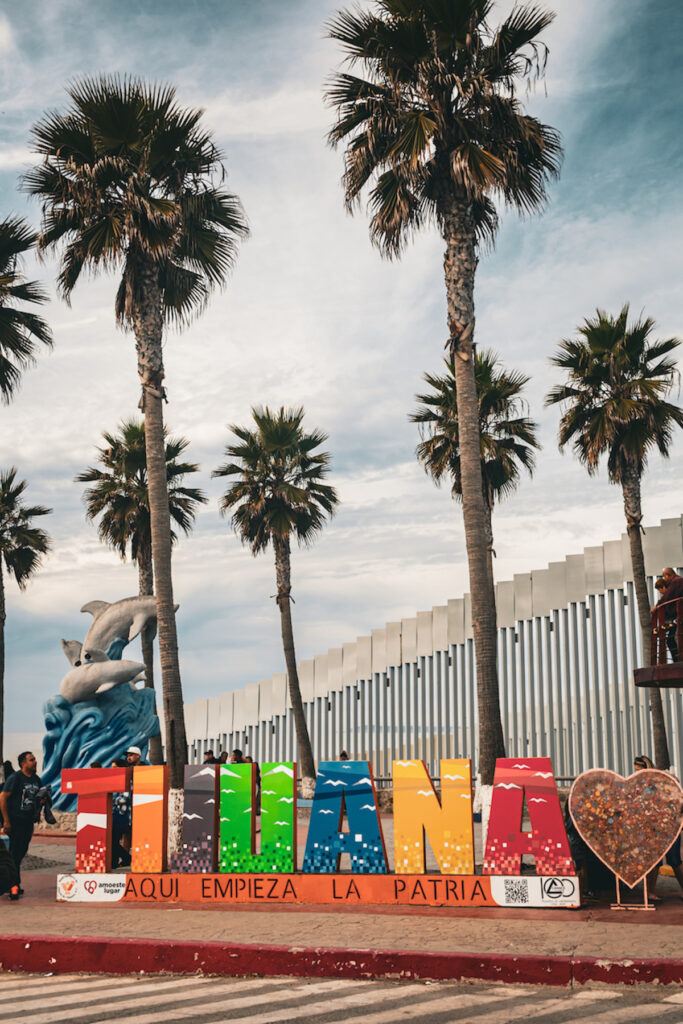
Leave a Reply